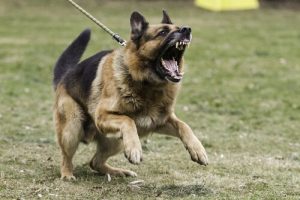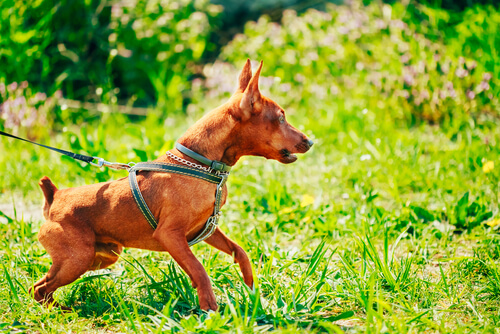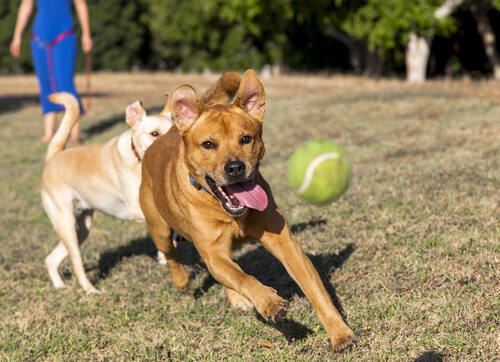What to Do If Your Dog is Being Aggressive


Written and verified by the lawyer Francisco María García
When you get a beautiful puppy, you immediately fall in love with your new companion. At that exact moment, a true friendship begins that will last for a very long time. However, what if the little one grows up and starts attacking other dogs, children and even adults? You get worried and ask yourself why your dog is being aggressive.
When a dog begins to show aggressive behavior, your family says something, the neighbors watch you out of the corners of their eyes, and complaints start rolling in. But no matter how much other people encourage you to, there’s no reason to throw your faithful pet out on the street. What there is reason to do, though, is to take action.
The good news is that there are useful techniques to train your dog and avoid aggressiveness. Your dog can learn to control its aggressive behaviors. These techniques work on all breeds, no exceptions.
Studying Your Pet’s Aggressiveness

If your dog is being aggressive, the first thing to do is to analyze how the dog’s fits of anger begin. There are animals that are prone to attacking young children if they approach suddenly. Others engage in fights with other dogs, or just hunt other species such as cats, mice or insects.
Identifying the external conditions under which your animal acts aggressively is the beginning of the solution. With this information, you can take precautions and keep your your dog out of triggering situations. So keep an eye on your dog’s surroundings!
Early Socialization
Occasionally, a dog is being aggressive due to social isolation. Therefore, once your dog is about two to four months old, you should begin socializing him with humans and other dogs. Improved social skills translate into adaptation and mental balance.
Additionally, letting your furry friend play with other animals of their kind will help keep them from biting. Each time he unconsciously bites his playmates, they move away, and that momentary rejection helps teach your dog to control its actions. Reprimand your dog when he’s being too rough and reward him when he’s gentler.
Working on Obedience
If your dog is being aggressive, he’s reacting without obeying. Specialists have discovered that two reasons are a lack of leadership and clearly-established rules. This means that you have to try to be an effective leader and be consistent with the rules.
An excellent exercise is to control your dog’s movements by using the leash. Teach your dog to walk at the same speed as you. Taking the time to teach him a few tricks is another way to strengthen your position of authority.
Teach Your Dog to “Drop It”
As you should already know if you are a dog owner, dogs are able to recognize certain verbal commands. If they are well trained, they will be able to obey commands such as “come”, “sit” and “attack”.
Chew toys are excellent for this type of training.
- Sit down to play with your dog for awhile.
- Every time he bites the toy aggressively, command him to drop it, while simultaneously attempting to remove the object from his mouth and repeating “drop it”.
- Over time, your dog will understand that not everything in life is about biting, and that you do not want him to be biting everything that comes in contact with its mouth. Your dog will stop biting as much and learn to control his impulses.
Help Your Dog Burn Off Energy

If a dog spends a lot of time in enclosed spaces without the opportunity to run, it’s very likely that he will get stressed and develop violent behaviors. A sedentary lifestyle is one of the main reasons if a dog is being aggressive.
Instead of taking your pet out for walks in a hurry, you need to provide more time for socialization and quality physical activities. Take your dog for long walks, play fetch with him and make sure he’s tired and ready to take a nap once you get home. Exercise and fatigue are important for your dog’s emotional balance.
Finally, understand that dogs are living images of their owners. If you hit your dog, or if you do not train your dog in a disciplined manner, the results could be very serious.
This text is provided for informational purposes only and does not replace consultation with a professional. If in doubt, consult your specialist.